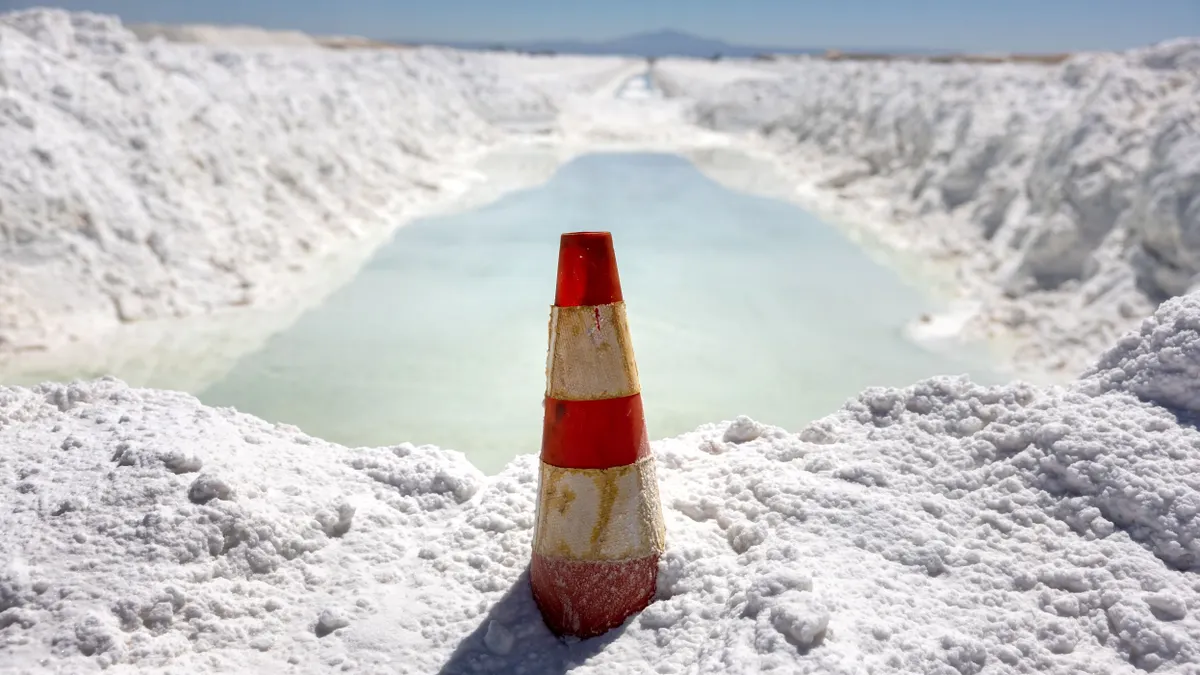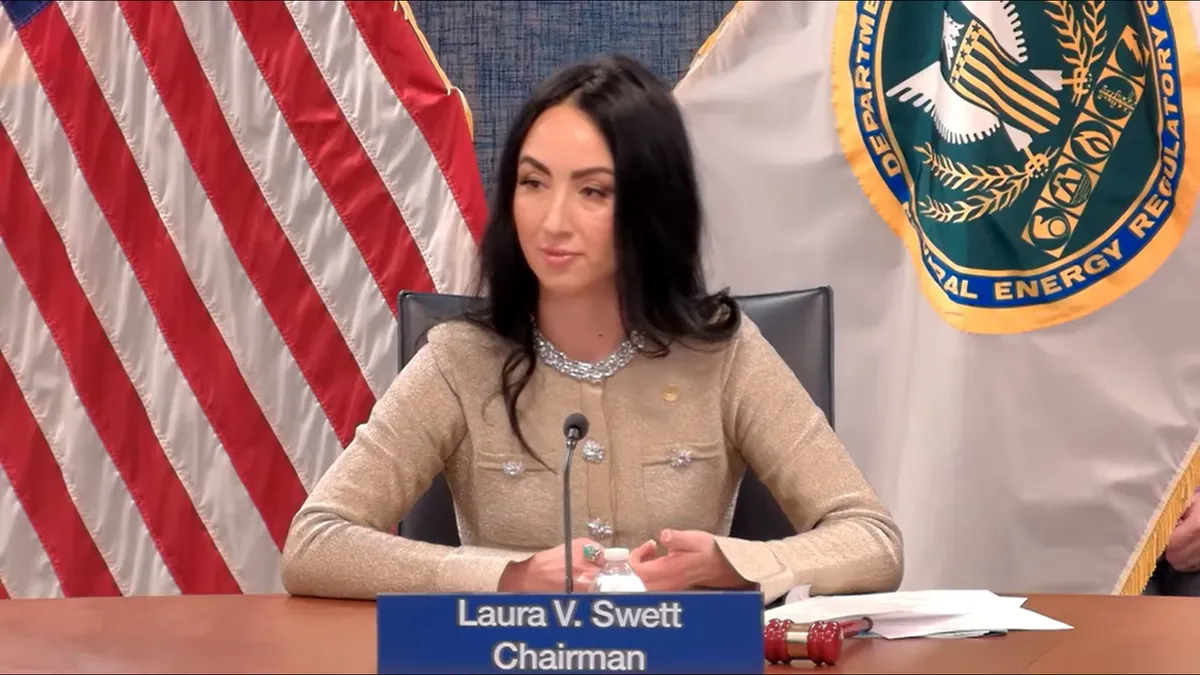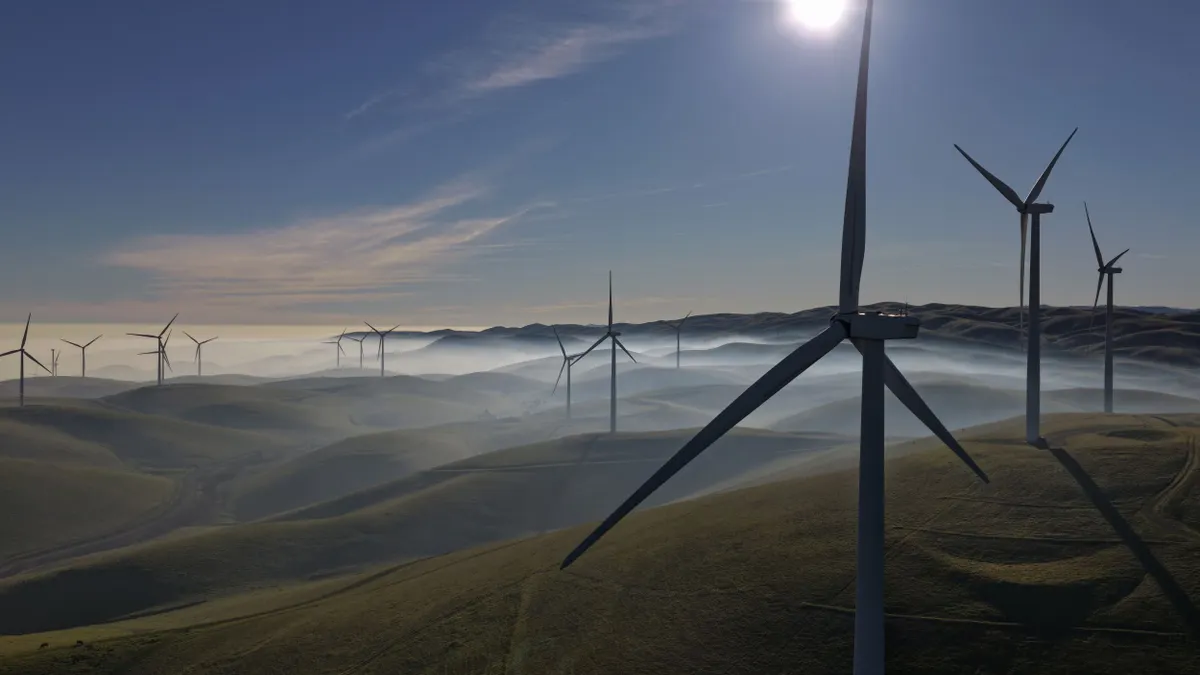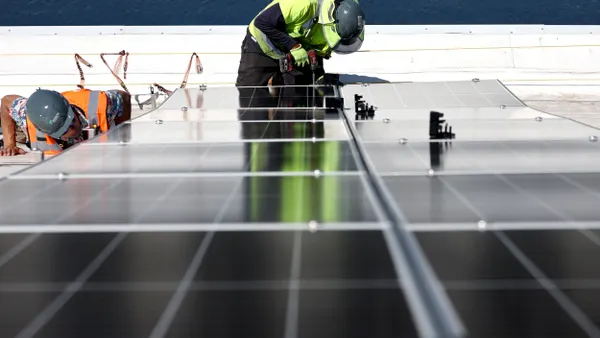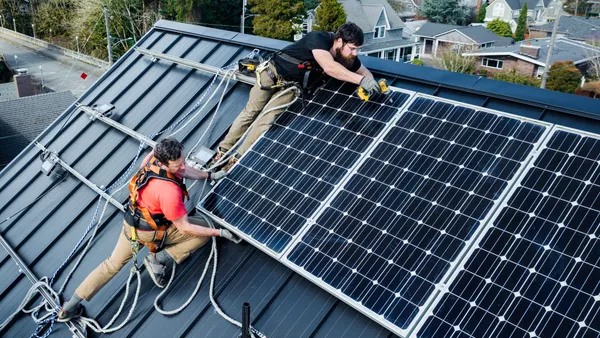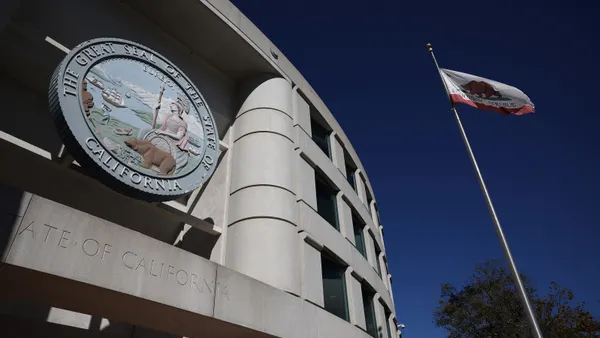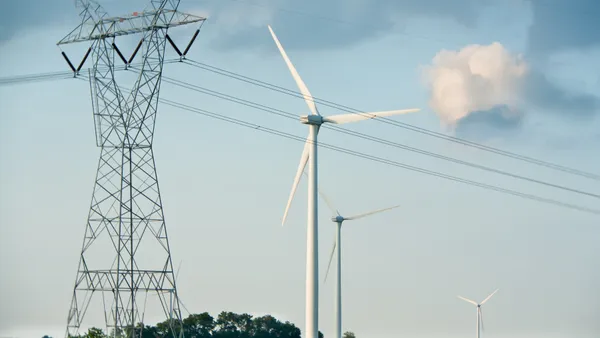Dive Brief:
- Since 2009, 95 legal cases have been launched globally claiming human rights harms caused by renewable energy projects, according to new research from the Business and Human Rights Resource Center. The BHRRC is an international NGO that promotes corporate accountability and transparency by highlighting companies’ social and environmental impact on communities.
- The majority of lawsuits (71%) were against companies mining what the BHRRC calls “transition minerals,” eight minerals that are crucial elements of renewable energy technologies, such as lithium for electric vehicles. The other 29% involved renewable energy projects such as wind (14%), hydropower (12%) and solar projects (4%).
- About 77% of these cases have been filed since 2018, aligning with the recent surge of project developments in the energy transition sector, according to a July 1 press release. The region with the largest share of suits —53% — was Latin America and the Caribbean, with 76% of these cases relating to the extraction of transition minerals.
Dive Insight:
The BHRRC’s analysis is based on data from its “Just Transition Litigation Tracking Tool,” which tracks a subset of climate lawsuits related to the renewable energy transition. The tracker includes legal cases brought by groups the BHRCC defines as “rightsholders,” such as Indigenous peoples, communities and workers directly affected by such energy projects. The tracker focuses on civil, constitutional and administrative lawsuits in domestic courts and doesn’t take into account criminal cases against companies or measures taken by regulatory bodies.
The BHRRC also analyzed the lawsuits in terms of how they affected the plaintiffs in matters ranging from land rights to forced labor. About 70% of the tracked cases claimed environmental abuses and 56% of cases related to water pollution, specifically. Forty percent of cases claimed impacts on protected areas such as Indigenous people’s sacred land, while 27% of cases claimed violations of land rights. Forty-eight percent of cases involved a violation of the right to livelihood, including the right to food and to the ownership and control of natural resources.
Almost half of all cases were filed by Indigenous peoples, and 49% of these cases complained of violations of their rights, including, more specifically, the right to “free, prior and informed consent.”
For the majority of cases filed (53%), rightsholders claimed they had not been sufficiently consulted regarding a project.
The BHRRC characterized the lawsuits as seeking to shape the renewable energy transition rather than stop it altogether. But nearly 65% of legal cases in the tracker sought to permanently or temporarily halt the project in question.
Such data demonstrates that failing to partner with affected communities when launching renewable energy projects presents “severe legal risks” for companies and investors, as well as the risk of slowing the energy transition as a whole, according to the BHRRC.
“Our data paints a troubling picture: if companies and investors don’t urgently address disregard for the human rights in the renewable energy value chain, we are likely to see a derailing of the much-needed clean energy transition,” Elodie Abe, senior leader researcher at the BHRRC, said in the press release. “Human rights are not a barrier to progress; they are a precondition for it.”
BHRRC’s tracker adds to recent data showing a spike in climate litigation. Last year, a report from Oil Change International and Zero Carbon Analytics found that the annual number of climate-related lawsuits filed against the world’s largest fossil fuel producing companies has nearly tripled since the Paris Agreement was adopted in 2015. The report said that the “significant upward trend in new cases being filed against fossil fuel companies appears likely to continue.”


